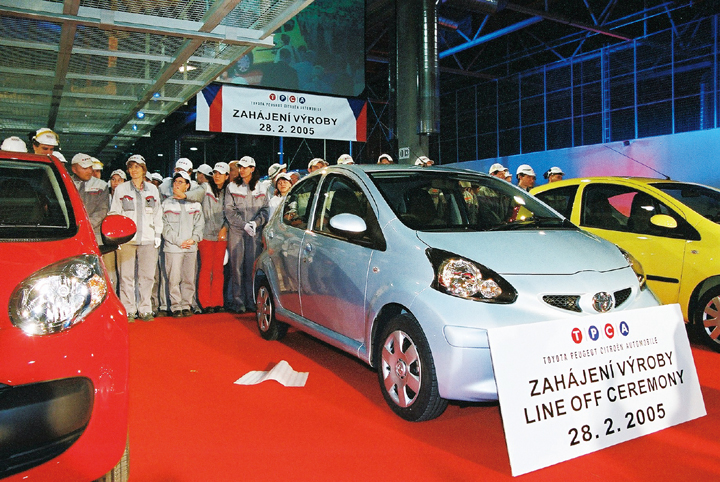Section 2. European Operations Become Autonomous
Item 3. Expansion of Production Bases
B-zero project launched-joint venture business with PSA
By the end of the 1990s, the automobile industry had undergone consolidation on a global scale, exemplified by the creation of DaimlerChrysler AG. TMC established the Global Strategy Investigation Committee in 1999 to investigate the possibility of collaboration with various other companies. Meanwhile, leading European automakers appeared to be moving toward the launch of global strategic vehicles in the B segment (Yaris class) and smaller in response to tighter CO2 regulations in the European Union (EU), and TMC too investigated entering this market.
It was under these circumstances that TMC received an inquiry from PSA concerning collaboration, and the B-zero project targeting the B-segment market and smaller vehicles was launched.
The B-zero project, which centered on jointly developing and producing a vehicle with PSA, involved a number of initiatives implemented without adhering to existing Toyota methods. For example, the idea of using common parts among the different-brand vehicles envisioned for the joint venture and the idea to take a new approach with vehicle planning and performance standards were boldly adopted. Also, approximately 70 percent of the suppliers were based in Europe, and about 80 percent of those were in Central Europe and Eastern Europe, enabling TMC to learn much about the procurement methods of European automakers.
TPCA pursued simple and streamlined processes that were optimized for the B-zero project. As a result, production space, the number of processes, and production line length were reduced by 10 percent to 20 percent compared to that at TMMF. TPCA began producing the Aygo for Toyota and the Peugeot 107 and Citroën C1 in February 2005.


